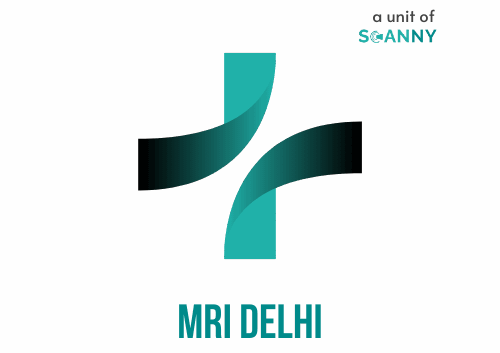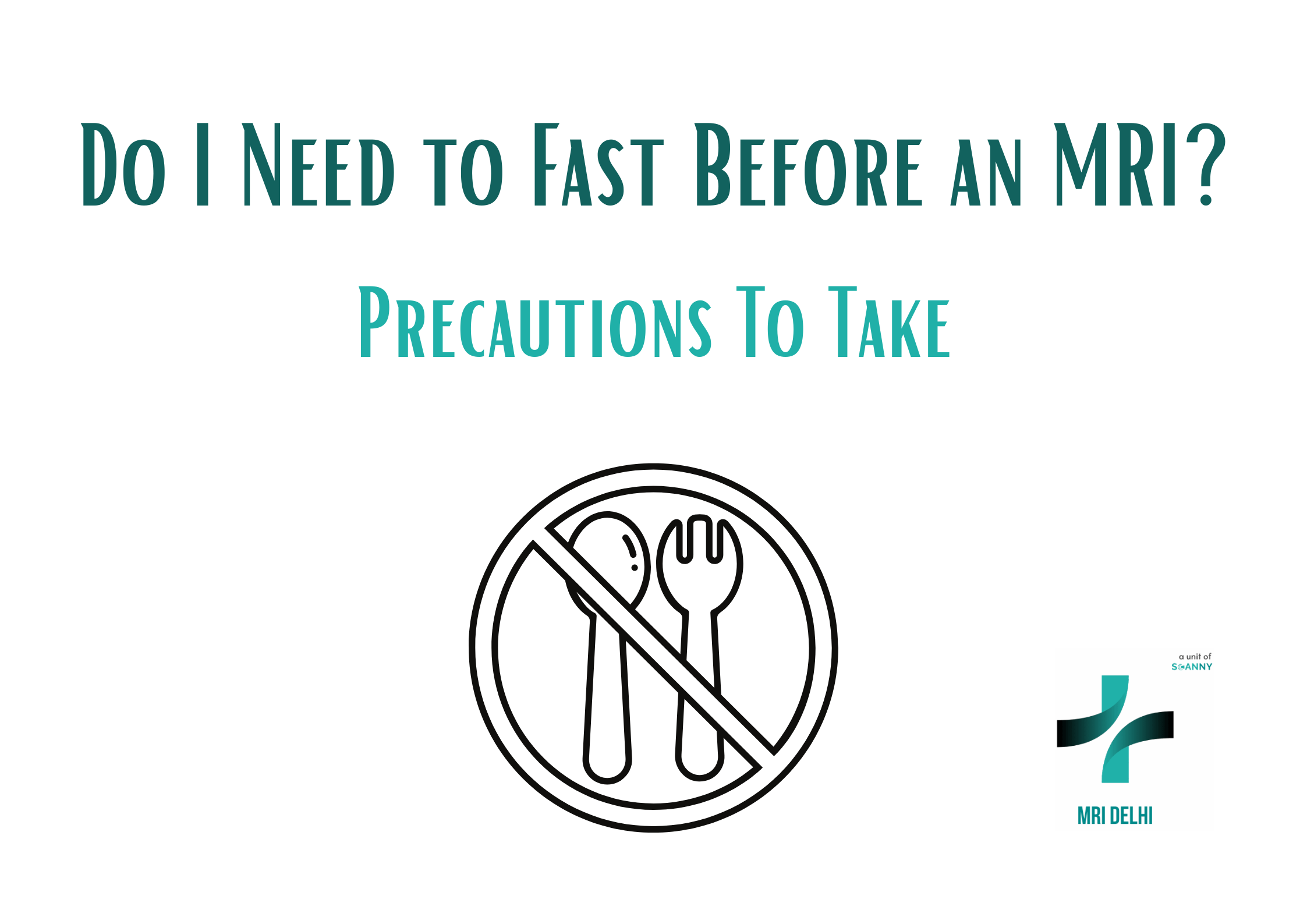Most MRI scans do not require fasting. You can eat and drink normally before your appointment. However, specific types of MRI examinations may have different preparation requirements.
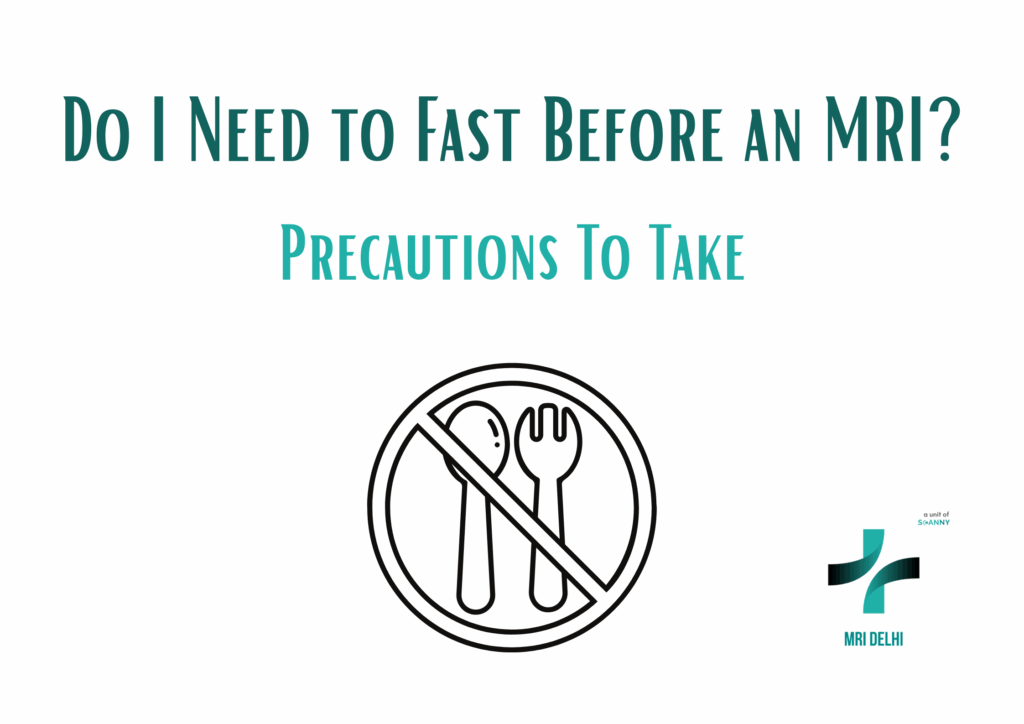
When Fasting May Be Required?
Certain MRI procedures involve contrast materials that could cause nausea or vomiting. For these scans, doctors typically recommend avoiding food for 4-6 hours beforehand:
MRCP (Magnetic Resonance Cholangiopancreatography)
- Examines bile ducts and pancreas
- Requires 4-6 hours of fasting
- Water usually permitted up to 2 hours before scan
Abdominal MRI with Contrast
- Some facilities request 4-6 hours without food
- Reduces risk of nausea from contrast agent
- Clear liquids often allowed until 2 hours prior
Pelvic MRI
- May require empty stomach for clearer images
- Fasting duration varies by facility
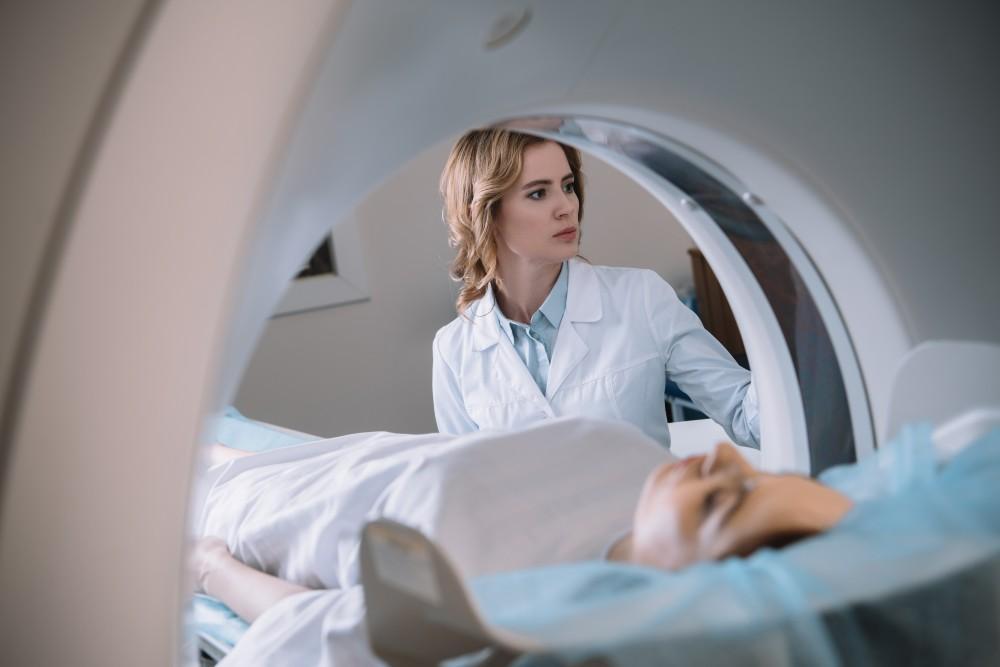
Standard MRI Scans – No Fasting Needed
Brain and head MRI, spine MRI, joint and extremity MRI, cardiac MRI (without contrast), and breast MRI typically allow normal eating and drinking before the procedure.
What About Medications?
Continue taking prescribed medications unless your doctor specifically instructs otherwise. Bring a list of current medications to your appointment. Diabetic patients should discuss timing with their healthcare provider, especially if fasting is required.
Contrast Agent Considerations
Gadolinium-based contrast agents are generally safe but can occasionally cause mild nausea. Fasting reduces this risk during longer examinations. Patients with kidney problems need special evaluation before receiving contrast. Previous allergic reactions to contrast should be reported immediately.
Preparation Guidelines
Arrive 15-30 minutes early for paperwork and screening. Remove all metal objects including jewelry, watches, and clothing with metal fasteners. Inform technologists about any implanted devices, pregnancy, or claustrophobia concerns.
Special Situations
Pregnancy MRI is generally safe during pregnancy, but contrast agents are usually avoided. Fasting requirements don’t change based on pregnancy status.
Diabetes Patients with diabetes should coordinate meal timing and medication schedules with their healthcare team, especially if fasting is required.
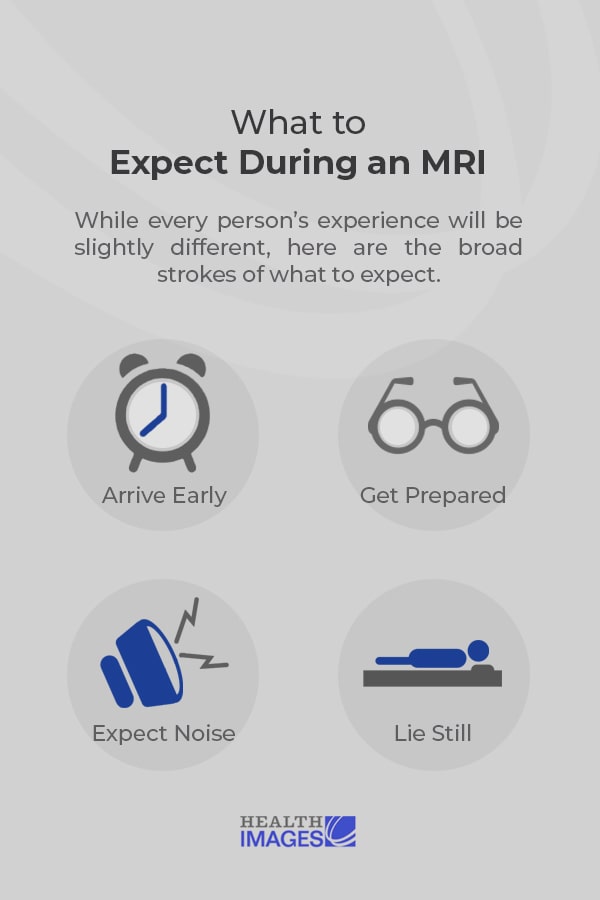
Anxiety and Claustrophobia Some patients receive mild sedation, which may require fasting. Discuss anxiety concerns with your doctor beforehand.
Pre-Scan Checklist
Confirm appointment time and location. Review any preparation instructions provided by your healthcare team. Arrange transportation if sedation will be used. Prepare questions for your technologist or radiologist.
Frequently Asked Questions
Can I drink water before my MRI?
Yes, unless specifically instructed otherwise. Water rarely interferes with imaging quality.
What if I accidentally ate before a fasting MRI?
Contact the imaging center immediately. They may reschedule your appointment or proceed based on what and when you ate.
Do I need to stop supplements or vitamins?
Generally no, but inform your technologist about all substances you take regularly.
How long do MRI scans typically take?
Most scans last 30-60 minutes, though some specialized studies may take longer.

What happens if I feel nauseous during the scan?
Alert the technologist immediately through the communication system. They can pause the exam if needed.
Can I eat immediately after my MRI?
Yes, you can resume normal eating and drinking right after your scan unless you received sedation.
Are there foods I should avoid before any MRI?
No specific foods need avoidance for standard MRIs. For abdominal scans, some centers recommend avoiding gas-producing foods.
What about chewing gum or mints?
Remove gum before the scan as chewing creates motion artifacts. Mints are typically fine but should be finished before entering the scanner.
After Your MRI
Results are typically available within 24-48 hours. Your doctor will discuss findings and any necessary follow-up. Most patients can immediately return to normal activities unless they received sedation.
The majority of MRI examinations allow you to maintain your regular eating schedule. Always follow the specific instructions provided by your imaging center or healthcare provider, as requirements can vary based on the type of scan and your individual medical situation.
